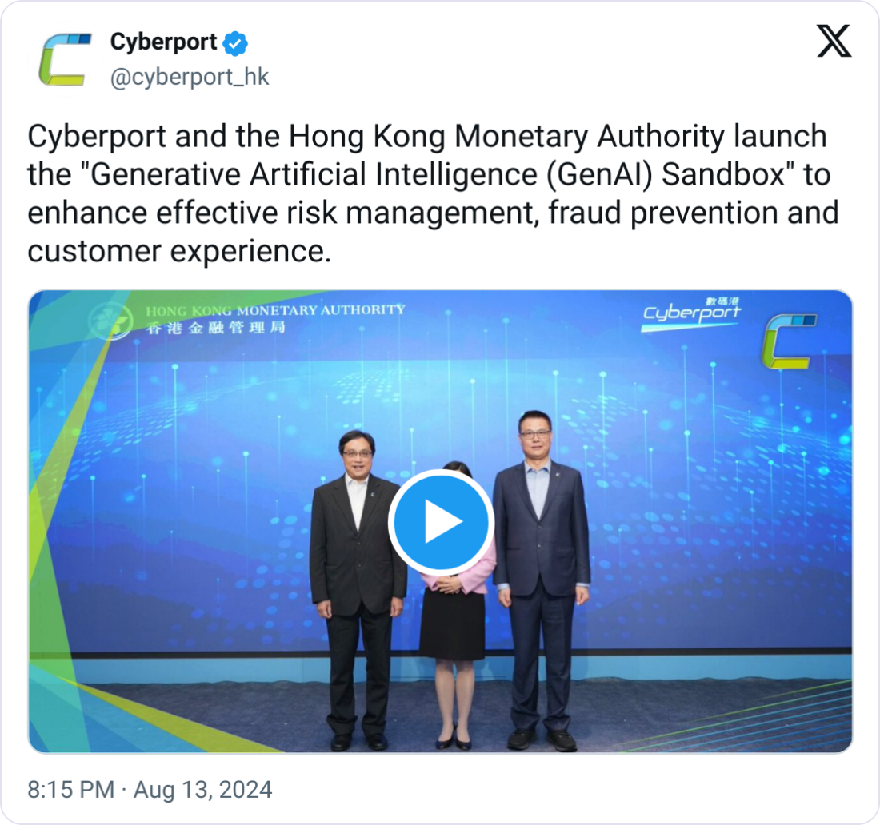Hong Kong Monetary Authority (HKMA) introduced additional principles to address the growing adoption of GenAI.

The Hong Kong Monetary Authority (HKMA) has established a set of guiding guidelines for the use of generative artificial intelligence in consumer-facing apps in order to protect end-users.
The Hong Kong Monetary Authority (HKMA), which is Hong Kong’s central banking institution, has issued a circular to authorised institutions, the majority of which are banks, in which it introduces modifications to its preceding four pillars of guidance on the use of generative artificial intelligence (GenAI).
In November 2019, the initial proposal for big data analytics and artificial intelligence proposed four central pillars: governance and accountability, fairness, transparency and disclosure, and data privacy and protection.
We added brand new principles to these four central pillars. In the past few months, the adoption of generative artificial intelligence (AI) for customer-facing apps has risen among banking institutions, as stated by Alan Au, the executive director of the banking conduct section of the Hong Kong Monetary Authority (HKMA).
“Potential applications include but are not limited to customer chatbots, customized product and service development and delivery, targeted sales and marketing, and robo-advisors in wealth management and insurance.”
Taking into account the consequences for consumer protection, Au proposed a number of principles for GenAI, one of which was to provide end-users with transparent information through disclosures that were easy to grasp.
Moreover, the Hong Kong Monetary Authority anticipates that the board of directors and senior management would be completely accountable for any actions that pertain to GenAI.
GenAI models used in consumer-oriented applications must also ensure fair and consistent results. Lastly, the HKMA requested that authorised institutions pay particular attention to the protection of consumer data.
On August 13, the Hong Kong Monetary Authority (HKMA) collaborated with Cyberport, a state-run technological business, to establish a GenAI sandbox for finance. The GenAI sandbox in Hong Kong serves as a platform for testing the possible uses of artificial intelligence in the financial sector.

These applications include risk management, anti-fraud, customer service, and process reengineering. Carmen Chu, the executive director of the Hong Kong Monetary Authority (HKMA), explained that the GenAI sandbox enables financial institutions to test out their innovative GenAI use cases in a risk-managed environment, supported by necessary technical assistance and targeted supervisory feedback.
“This new sandbox aims to overcome the “hard” and “soft” barriers to the adoption of GenA.I., that is, the demand for computing capabilities and the need for supervisory guidance.”
